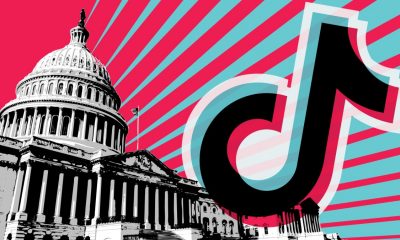Technology
El Salvador wants to be the first nation to treat bitcoin like cash


El Salvadorean president Nayib Bukele wants his country to lead the way globally for bitcoin.
That was the message President Bukele had for attendees at the Miami-set Bitcoin 2021 conference in a pre-taped video that played on Saturday. He announced a partnership with the payments app Strike that will pave the way for for bitcoin to join the U.S. dollar as an acceptable form of hard cash in El Salvador.
“Next week I will send to congress a bill that will make bitcoin a legal tender,” Bukele said in the video. The report goes on to note, in CNBC’s words, that Strike will help to “build the country’s modern financial infrastructure using bitcoin technology.”
The move is notable for one, simple reason: Bukele is positioning El Salvador to be the first nation in the world to put bitcoin on equal footing with cash payments. There are plenty of privately owned marketplaces that accept various forms of cryptocurrency as payments, but that recognition hasn’t yet happened on the national level in any one country.
Speaking on behalf of Strike, company founder Jack Mallers celebrated the move as “the shot heard ’round the world for bitcoin.” He also noted that that “[h]olding bitcoin provides a way to protect developing economies from potential shocks of fiat currency inflation.”
That second point is a debatable assertion, for what it’s worth, since bitcoin has proven to be prone to wild fluctuations in value. It’s influenced by different forces than fiat currency, the value of which is essentially derived from faith in the government that minted it. But bitcoin’s value jumps around plenty, too.
As Mashable’s own cryptocurrency expert Stan Schroeder wrote in February: “Despite the constant price rise over the years, Bitcoin is still highly volatile. The price of one bitcoin briefly reached $50,689 on the popular exchange , but it plummeted just as fast, and is sitting at around $49,500 at writing time.”
That volatility depends less on global shifts in national economies and more on market interest. That’s why many have taken the view that Elon Musk’s vigorous tweets about one form of cryptocurrency or another are a form of market manipulation. After Bitcoin’s $50,000 high in February, the price plummeted by thousands after Musk announced in mid-May that Tesla would no longer accept Bitcoin payments, reversing the announcement from a couple months earlier in March — not long after Bitcoin’s $50,000 high — that the company would accept them.
All of which is to say: Bitcoin isn’t necessarily the guard against inflation — or value shifts in general — that Mallers described. It’s an interesting development for the global financial system for all sorts of reasons, but sharp shifts in value are well within the realm of possibility (because it’s happened before).
The CNBC report on all this notes that, in addition to the Strike partnership, El Salvador is working with “a team of bitcoin leaders to help build a new financial ecosystem with bitcoin as the base layer.” The measure is seen as likely to pass through El Salvador’s legislature without incident.
Strike, an app that uses bitcoin and blockchain tech to enable payments between users around the world, launched in El Salvador in March and it became the country’s most downloaded app. As CNBC notes, the country’s economy is primarily cash-based, with a significant majority of the public (70 percent) having no bank account or credit cards.
In that context, the move to codify bitcoin as the foundation of El Salvador’s financial system makes sense. The people are already moving in that direction, apparently, and the country asserting a measure of control over its usage means the movement of money can be regulated and properly taxed.
Bukele is popular with the El Salvadorean public, though the conduct of his administration has also drawn the attention of Human Rights Watch for the undermining of “basic democratic checks and balances.” This includes intimidation of legislators and multiple acts of defiance to national Supreme Court rulings related to COVID-19 precautions.
-

 Entertainment6 days ago
Entertainment6 days agoSummer Movie Preview: From ‘Alien’ and ‘Furiosa’ to ‘Deadpool and Wolverine’
-

 Entertainment5 days ago
Entertainment5 days agoWhat’s on the far side of the moon? Not darkness.
-

 Business6 days ago
Business6 days agoThoma Bravo to take UK cybersecurity company Darktrace private in $5B deal
-

 Business6 days ago
Business6 days agoHow Rubrik’s IPO paid off big for Greylock VC Asheem Chandna
-

 Business5 days ago
Business5 days agoTikTok faces a ban in the US, Tesla profits drop and healthcare data leaks
-

 Business4 days ago
Business4 days agoLondon’s first defense tech hackathon brings Ukraine war closer to the city’s startups
-

 Business7 days ago
Business7 days agoZomato’s quick commerce unit Blinkit eclipses core food business in value, says Goldman Sachs
-

 Entertainment7 days ago
Entertainment7 days agoMonsta X’s I.M on making music, gaming, and being called ‘zaddy’






















